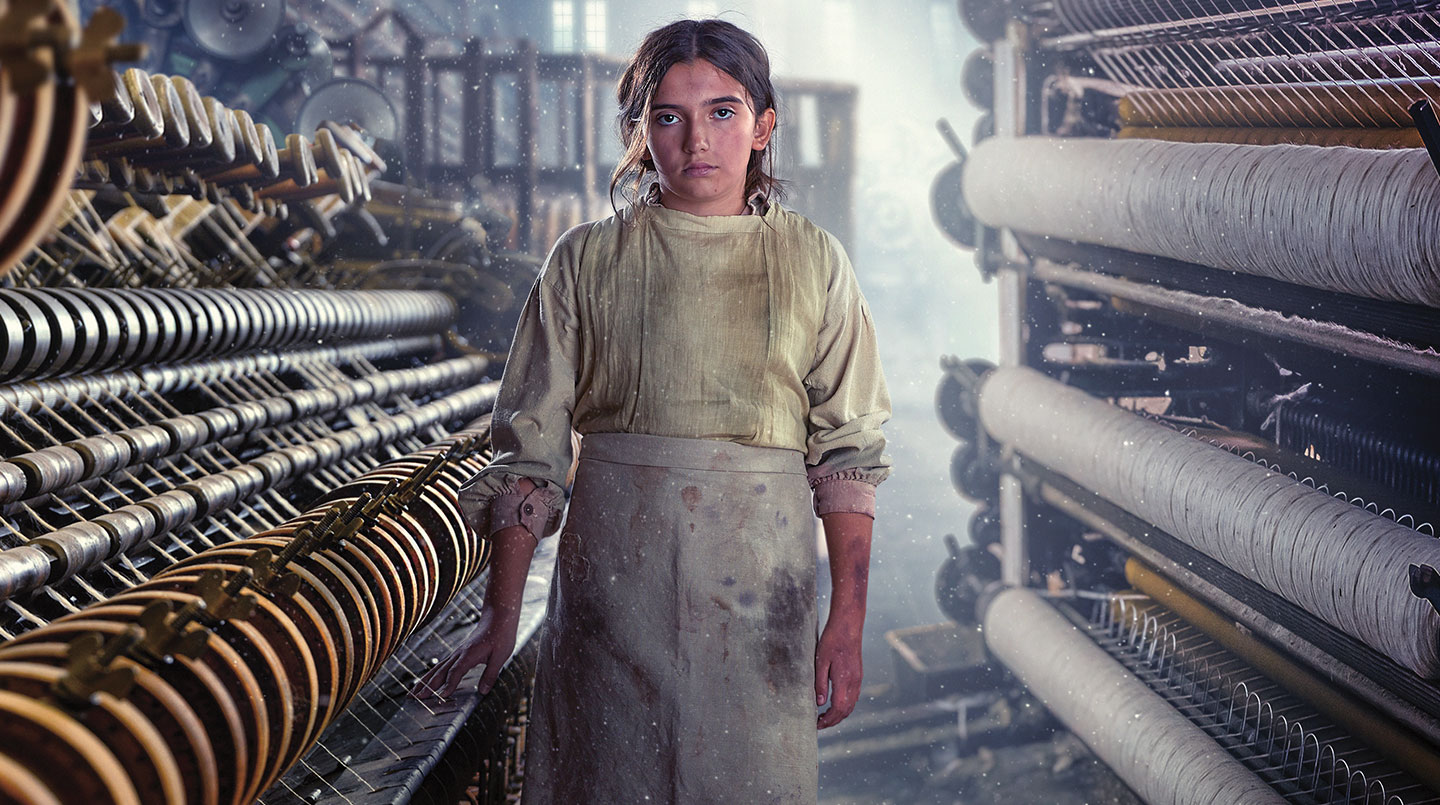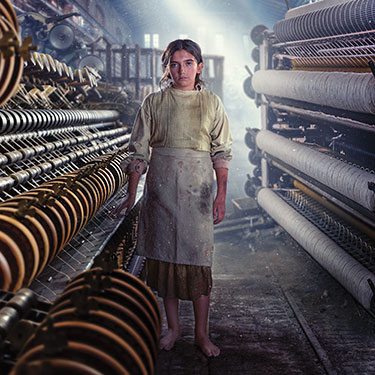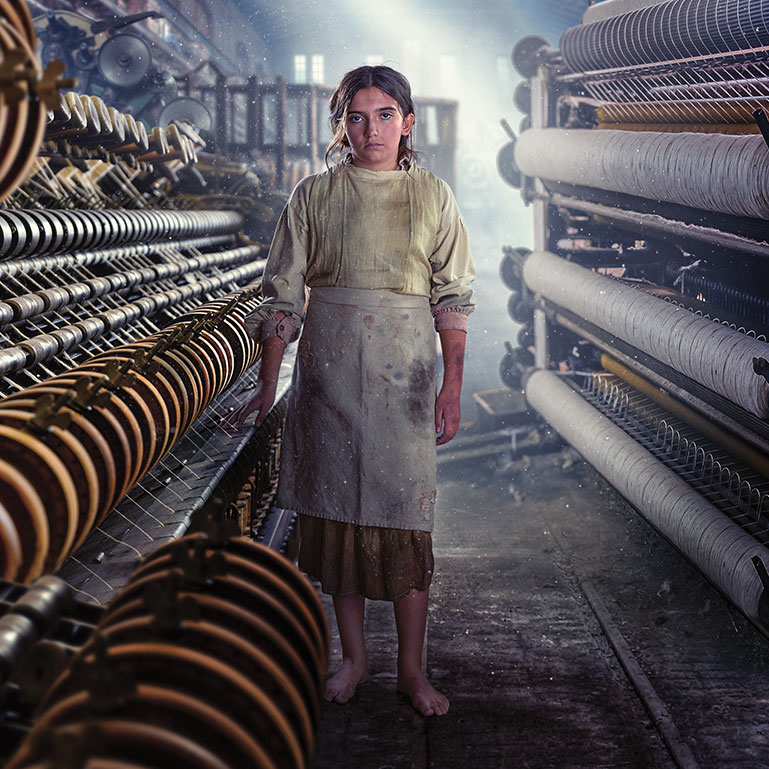In a split second, Camella Teoli’s life changed forever. It was late in the afternoon. The 12-year-old factory worker had been on her feet for hours changing spools of thread on machines that spun wool into fabric. All day, she’d had to keep her long hair pinned up around the machinery’s whirring belts, gears, and rollers. Finally, tired and uncomfortable, Camella let her hair down. She turned—and suddenly, a spinning roller yanked the end of her brown locks. Before she could even cry out, her hair was sucked into the enormous machine.
That day in July 1909 had already seemed endless. Like many of the other mill workers at the Washington Mill in Lawrence, Massachusetts, Camella had risen before dawn to get to work by 6 a.m. Hour after hour, the noise of the factory machinery had assaulted her ears. The air in the building was thick with fibers from the fabric being spun there—and she would draw them in with each breath, irritating her lungs.
In a split second, Camella Teoli’s life changed forever. It was late in the afternoon. The 12-year-old factory worker had been on her feet for hours. She had been changing spools of thread on machines that spun wool into fabric. The machinery had whirring belts, gears, and rollers. So all day, she had kept her long hair pinned up. Finally, tired and uncomfortable, Camella let her hair down. She turned. Suddenly, a spinning roller yanked the end of her brown locks. Before she could even cry out, her hair was sucked into the enormous machine.
That day in July 1909 had already seemed endless. Camella was at the Washington Mill in Lawrence, Massachusetts. Like many of the other mill workers, she had risen before dawn to get to work by 6 a.m. Hour after hour, the noise of the factory machinery had assaulted her ears. The air in the building was thick with fibers from the fabric being spun there. And she would draw them in with each breath. They irritated her lungs.





